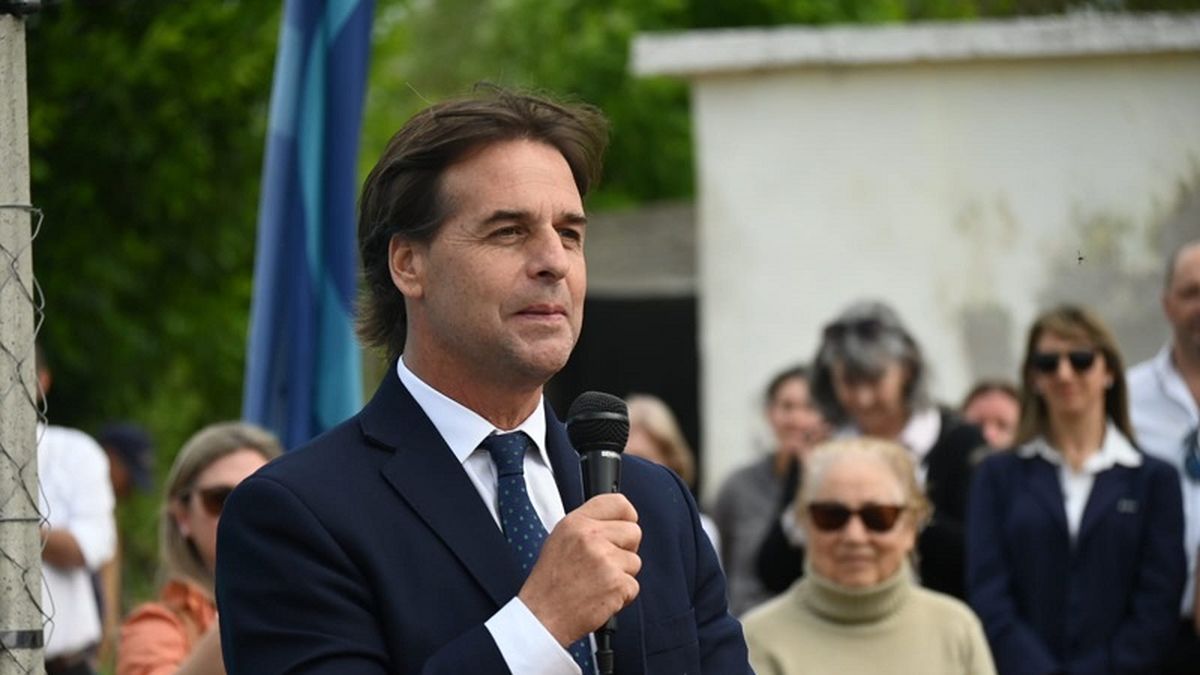Uruguay takes place in a complex moment marked by the water crisis and the exchange difference with Argentina, that puts the different levels of government management to the test, after having entered into a certain truce after a new scandal within the Multicolored Coalition. In this context, consultants Figure and factum published different studies that show the current political scenario: the president Luis Lacalle Pou It maintains approval levels of around 46% but, if the coalition breaks, it would be difficult for the ruling party to seek re-election in an increasingly polarized context.
The surveys measure different issues: while Cifra’s aimed to know the discharge level of the president, the one from Factum asked about the voting intention if the elections were today, to understand how the electoral panorama is coming during the year in which the pre-candidacies are already beginning to be defined.
A smooth approval
46% of Uruguayans approve of Lacalle Pou’s management, while 43% disapprove: that is the main point of the survey carried out by the Cifra consultancy. The same, carried out between April 20 and May 3, came to collect the blows of the negotiation around the social security reform law, but did not show great changes with respect to previous measurements or compared to the opinion on previous governments.
Likewise, most of the positive assessments were given among those who voted for the multicolor program in 2019, with Lacalle Pou at the top of the list: 82% of whites and 81% of voters of other parties in the coalition support him. On the other hand, 78% of the front members are critical of the management.
What the Cifra study highlights is that, in the last two months, Uruguayans have been faced with a sharpening of polarization, just over three years in government and with the 2024 elections closer. In this way, those who voted for the ruling party are more and more in favor, and those who did not are more and more against it.
However, the level of approval remains within the expected margins for a half of the presidential term, compared to the efforts of former presidents tabare vazquez and Jose Mujica —both of the Broad Front (FA)—; although it also collects more negative judgments than its predecessors. Meanwhile, the approval rating is “normal,” but opinion is more polarized.
What would happen if the elections were today?
Factum, for its part, published the National Survey corresponding to the second two-month period of the year and, as the same consultant is in charge of pointing out, the opinions collected could have been strongly influenced by the particular moment.
Manini Rios Lacalle Pou
Photo: AFP
The survey was carried out between April 24 and March 11, therefore it covers the “potential impacts” of the social security reform, although it does not fully take the effects of the last great crisis of the government, when Town meeting threatened to leave the coalition after the request for the resignation of the minister of Housing and Territorial Planning (MVOT), Irene Moreira.
In this context, the measurement resulted in the current voting intention, by party, showing that the Broad Front accumulates 41%while the parties of the Multicolor Coalition remain far behind: the National Party with 23%; Open Town Hall with 11%; he Colorado party with 8%; he independent party with 3%; and other parties also with 3%.
If all the parties of the current government are added, the coalition would have a 46% voting intention. In short, the only way they could aspire to a new victory against the FA is by maintaining the unit that, in recent months, has been weak, at best.
If the evolution of the large political blocs is analyzed, the FA has recovered 2 points compared to the 2019 elections, consolidating itself at 41% of the intention to vote. The biggest movements have been experienced by the Multicolor Coalition, with the National Party (PN) taking the consequences of the wear and tear of the management, with a systematic drop from 28 to 23% During last year; although, in general, the current government also maintains stability around 46%.
Open Town Hall, better
Possibly driven by public opinion regarding its stance on social security reform, Cabildo Abierto (CA) was the party that showed growth since the last Factum measurement, going from a consolidated 8-9% to 11% on this occasion. It remains to be seen if this position is maintained during the next two months and what impact the recent crisis of the coalition will have, which had as protagonists the main figures of the sector led by Guido Manini Rios.
But, ultimately, and in a similar way to what was measured by Cifra, the Factum survey reveals a fairly polarized political scenario, in which the 7% undecided could be key to defining the electoral results.
Source: Ambito




